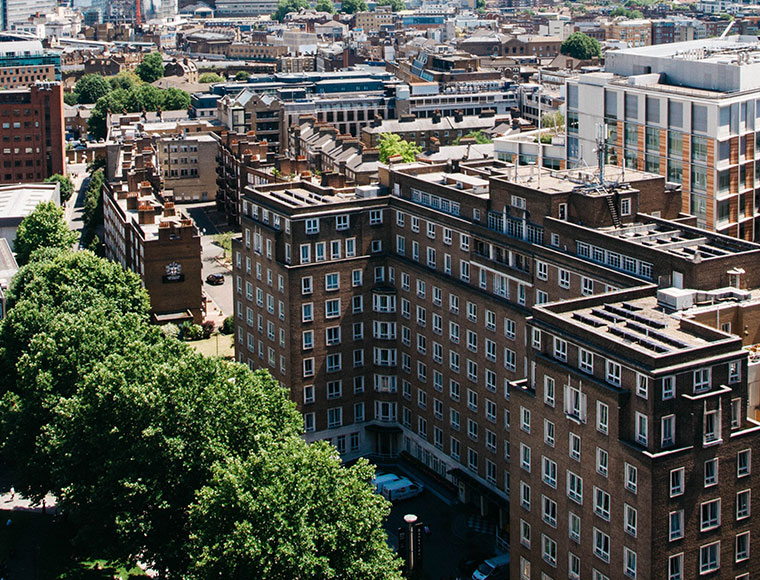As the old saying goes, a week is a long time in politics. But keeping up with the recent changes in policy, tax legislation (and job titles) over the past three weeks has become a full-time job!

In a shock move, Kwasi Kwarteng was sacked from his role as Chancellor of the Exchequer on 14 October and was replaced with Jeremy Hunt. On 17 October, Mr Hunt then brought forward his financial statement to parliament, in an attempt to stabilise the UK economy and markets.
What did the new Chancellor announce in this new statement?
Hunt has reversed the majority of Kwarteng’s mini-budget, scrapping most of the main tax measures that had been announced. These reversals are probably a welcome move, but the constant changes in policy are making it exceptionally difficult for businesses to plan effectively.
What’s still in and what’s been scrapped?
Here’s our rundown of the mini-budget measures that have been scrapped – and the measures that are (at present) still on the table.
Many commentators, including the International Monetary Fund (IMF), called for a rethink on the main strategies behind Kwarteng’s ‘plan for growth’. This, and growing political pressure, has forced yet more embarrassing U-turns on measures previously announced in the mini-budget.
- The removal of the 45% additional rate of tax has been scrapped – the additional 45p rate has been reinstated. The top rate of income tax for those earning more than £150,000 a year will remain at 45%.
- The cut in the basic rate of income tax has been scrapped – the basic rate of income tax was to be cut from 20% to 19%. This plan has now been shelved, leaving the basic rate at the pre-mini-budget rate of 20%.
- The removal of the rise in corporation tax has also been shelved – the corporation tax rate was due to rise from 19% to 25% in April 2023. The mini-budget announced the removal of this planned rise to corporation tax. This has now been scrapped, and corporation tax is likely to rise to the planned 25% from April 2023.
- IR35 reform scrapped – the IR35 rules for contractors and freelancers were to have been reformed, but these changes have now been cancelled. Companies will still be responsible for checking that contractors meet the IR35 rules.
- Changes to dividend tax scrapped – the mini-budget announced that the rate of tax on dividends would revert to 7.5% (basic rate band) and 32.5% (higher-rate band) from 6 April 2023. This change will no longer take place.
- VAT-free shopping for tourists scrapped – in a bid to boost tourism, Kwarteng had announced that tourists wouldn’t pay VAT on items purchased in the UK. This measure has now been scrapped as well.
- Energy bills now only capped for 6 months – instead of domestic energy bills being capped at £2,500/annum for the ‘average’ household from October 2022 for two years, Hunt has only promised energy support for the next six months, until April 2023. At present, it’s still unclear how this will affect the Energy Bill Relief Scheme (EBRS) for non-domestic users. The Chancellor was quoted as saying ‘Any support for businesses will be targeted to those most affected. And the new approach will better incentivise energy efficiency’. We await confirmation of how the EBRS will now work.
What’s definitely still in?
There are still a few policies left standing from the September mini-budget, despite the wholesale scrapping of most of the headline tax measures.
The following announcement are (currently) still in place:
- The removal of the cap on bankers bonuses still stands – this allows banks to reward their employees as they sit fit, without the limitations of the pre-mini-budget cap of 100% of normal pay (200% with shareholder approval).
- Reversal of the National Insurance increase still in place – the National Insurance increase which came in from April 2022 will still be reversed, starting with the November pay month. The employer rate drops to 13.8% from 15.05% on annual earnings above £9,100. For the self-employed, the Class 4 rate will stay at 9% from 2022/23 instead of increasing to 10.25% above the threshold of £11,909 (2022/23) and £12,570 (2023/24).
- Stamp duty amended – from 23 September 2022, the first £250,000 of any property purchase will still have a 0% stamp duty rate. For first-time buyers, that’s £425,000 – provided that the total cost is not above £625,000. Those values are all up by £125,000.
- Capital allowances frozen – the Annual Investment Allowance (value of qualifying fixed assets with 100% deduction in year of acquisition) is still frozen at £1 million. This was planned to fall to £200,000 from April 2023.
Talk to us about the impact of these changes
Running a business in an ever-changing political and regulatory framework is not easy. The past few months have seen a series of new announcements, followed by screeching U-turns and major changes to key economic policies
We’ll do our best to keep you up to speed with the latest tax and business measures, and will keep you informed of any further announcements from the Chancellor.
If there are any tax policies you’d like to clarify with us, please do get in touch with our Surbiton team for a chat.





